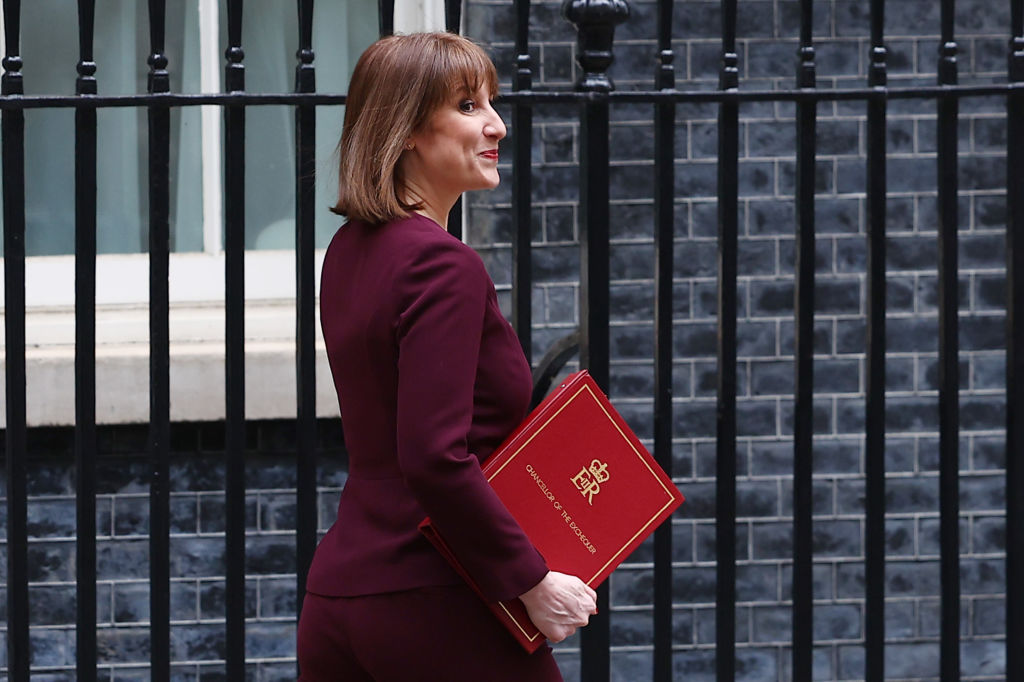Addressing the House of Commons this afternoon for her Spring Statement, Chancellor Rachel Reeves conceded that her sums for the autumn Budget were out by $14 billion. When you are elected on a platform of competence, and little else, such an error should be fatal.
Back in October, when Keir Starmer’s government still enjoyed a healthy polling lead, Reeves raised an additional $40 billion in new taxes, with most of that coming from a hike in employers’ National Insurance contributions. That gave the Exchequer just short of $10 billion of “fiscal headroom” if growth was downgraded, or the costs of borrowing proved higher than expected. Ultimately, both happened — not only eviscerating the Government’s cushion, but leaving the Chancellor $4 billion in the red.
John Maynard Keynes once declared that the only function of economic forecasting is to make astrology look respectable. Yet even he would struggle to comprehend the ineptitude of the Office for Budget Responsibility (OBR). Nevertheless, its almost-always erroneous predictions remain gospel for decision-makers — the latest of which is a downgrading of economic growth for 2025 from 2% to 1%. Considering the country’s population is expected to grow by 1% this year, primarily as a result of immigration, anything less would mean that the UK is in a per-capita recession.
And it is just such a recession which is the background to all of this, with the OBR confirming that, as the result of a larger-than-expected labor force, productivity at the end of 2024 was 1.3% lower than documented in its October forecast. That means output per person is now 1.1% lower than five years ago. More broadly, British productivity — especially critical in a country with an aging population — has barely moved for 17 years. Today’s announcements showed that there is little sign of that changing soon.
What’s more, Starmer’s administration appears increasingly frantic and incompetent. Earlier this month, Liz Kendall, Secretary of State for Work and Pensions, outlined cuts to the welfare budget which would give Reeves approximately $5 billion. Yet the OBR determined those changes would raise just over half that amount (allegedly $2.9 billion, to be specific). Kendall subsequently promised even more cuts, but even those took her department’s “contribution” to $3.5 billion. Public spending cuts, like the economy more generally, are in a doom loop. Meanwhile, quangos determine political reality rather than a government with a historic majority. It’s difficult to see how any of this endures in a democratic system.
Britain’s problems in 2025 remain much the same as they have been for the last 15 years: stagnant productivity, an economy centered on London, and expensive energy. In response, the Government canceled HS2 going north of Birmingham, while signing off on a flurry of projects in the South East, from new runways at Heathrow and Gatwick to the Lower Thames Crossing. Talk of “left-behind” towns and cities, a consequence of the Brexit result, already feels like nostalgia from a distant age.
The Government position on energy, meanwhile, seems increasingly delusional. Speaking today, Reeves said that Britain would become a “defense industrial superpower” under Labour, yet such an outcome is simply impossible for a country with the most expensive industrial energy in the West.
Labor has only been in office for nine months, and the negative trends shaping Britain all date back much further. The focus should therefore shift from Reeves to the role of the OBR, which has been consistently wrong since its inception in 2010. Its purpose seems to be little more than providing cover for the government of the day, and generating material to mislead the public. How else do you explain the fact that, as new housebuilding falls to historic lows, the Government can gleefully talk of reaching its targets?
Rather than a body which scrutinizes the Government, we have a quango mystifying what is going right, and more often wrong. Reeves is clearly unfit for her position. But, after today, the case to abolish the OBR has never been stronger.











Join the discussion
Join like minded readers that support our journalism by becoming a paid subscriber
To join the discussion in the comments, become a paid subscriber.
Join like minded readers that support our journalism, read unlimited articles and enjoy other subscriber-only benefits.
Subscribe